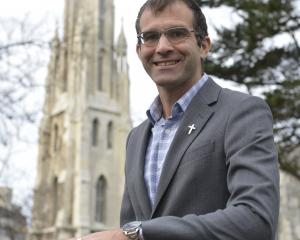
Perhaps in starting off this new year, like me, you find yourself to be more reflective than usual.
I’m putting it down to the impact of the unusual year that was. It’s a strange disposition, where pondering the events of 2020 has, at times, led me into a near reflective stupor. Like being stuck in a cavernous room furnished with highs and lows, wins and losses, good times and bad; a space where I can be tempted to throw a pity-party or willingly count my blessings.
Yet it’s in here that I’ve found something I’m very grateful for: the opportunity to work alongside people who understand the value of wisdom. My public health colleagues knew that in order to “do our bit”, and do it well, our response to Covid-19 would require wise leadership, wise counsel, and wise action. And while these people are incredibly knowledgeable and understand a lot about public health, what stands out (at least to me) is how deftly they drew together knowledge and understanding — in wisdom — once the situation reports started rolling in.
I find this reflection comforting, even consoling. Moreover, I believe that that is how it is, or rather should be for us, when wisdom is at play. Last year was difficult and taxing and, no doubt, 2021 will have its challenges. Yet there is, I believe, comfort to be found in wisdom. The Bible values wisdom highly and has a lot to say about it, particularly the Old Testament.
Indeed, there is a whole subset of books in the Hebrew Bible (five to seven of them, depending on your traditional particulars) called the "Sapiential Books" or "Books of Wisdom". In his commentary on one such book, Proverbs (of Solomon), Dan Phillips writes, “Wisdom is never merely a matter of knowing facts, but of knowing what to do with them — and doing it.”
Wisdom is not coldly clinical, brutish in factuality, or impersonal. Quite the opposite. According to the Bible, she is precious, pleasant, and peaceful. She will rebuke the fool but only because she doesn’t want them to perish in their folly. Her call is one for true being and right relationship. She longs to teach people, as Gleason Archer jun wrote, “…the art of getting along successfully with God and men (sic)”.
This is why King Solomon pleads with his sons, in Proverbs 4:6, not to forsake wisdom, because “…she will protect you; love her, and she will watch over you.”
But how does one love wisdom? Well, funny you should ask. The word for wisdom in Greek is "sophia". We know her as the second root in the word "philosophy", which means, “love of wisdom”. So, there you have it, we should all do more philosophy. Now, I can imagine many balking at such a suggestion. The word "philosophy" often brings to mind “dead, white, men”, or people stuck in an ivory tower who are “no earthly good”; overly intellectual folk who like using big words like "omphaloskepsis", the meaning of which, is literally “the contemplation of one's navel”. Perhaps that’s the image that springs to your mind when you think of the philosopher: a person so caught up in their (mental) pursuits that they practically lose track of the world around them. Socrates: lint hunter.
Yet herein lies a deceptive meme. In reality, everyone is a philosopher because everyone has a worldview. And everyone, to varying degrees and for various reasons, will be seeking to square away the experiences of last year, and life moving forward, through that network of foundational beliefs that forms one’s worldview. Harking back to Covid-19, “How do I know that what these public health people are saying is true? How certain are they that the science they’re relying on is sound? Is not getting the vaccine the wrong thing to do?”
Knowledge, language, truth, certainty, morality: all stuff that comprises the subject matter of philosophy. Cultivating a love of wisdom is walking the path of philosophical inquiry and reflection. It’s a path that leads, not necessarily to the good life but, as Alain Badiou writes, to “the true life”; the opposite being the false, or devastated life, where the paths mapped out before us are perverse, crooked, and dark (Proverbs 2).
Philosophy helps us to choose our steps carefully — wisely. It can teach us that we are not condemned to obey the new social prescriptions of the Woke mob, give ourselves over to experiential mysticism, or abandon our souls to the "strict physicalist" beliefs of Scientism.
Wisdom encourages us to execute sound judgement, helping us, “... understand what is right and just and fair” (Proverbs 2).
This places us in a better position to help those who are oppressed, find true meaning in life, and gain greater understanding about the world we live in.
- Sam Mangai is a member of the Cornerstone International Bible Church, Dunedin.
Comments
Circumspection, taking no side. The 'Woke mob' are anathema, informed by the Social Gospel. Community is all. No man is an Is Land.
As an atheist, I loved most of your piece until the fighting talk at the end. ie Woke mob. Given the events in the US and Jan 6, it seems unwise to use the language of division, and obviously the term "mob" now has far right imagery.
I agree that the books of wisdom in scripture should be highly valued and has much to offer. After seeing what a divisive administration can achieve in 4 years , its time to agree that most of us value truth, justice, humility wisdom and kindness. Even atheists.












